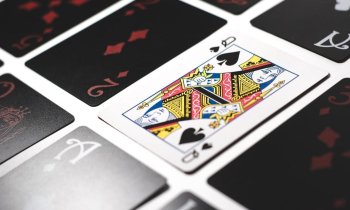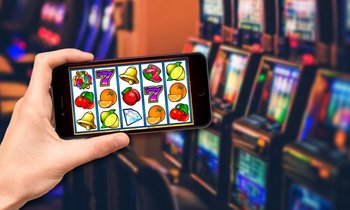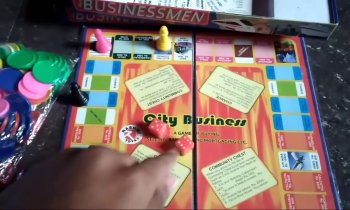The distinction between the categories of people has nothing to do with mental fortitude; there are numerous reasons why someone might get a gambling addiction. Gambling and betting (including crypto betting), in particular, might be a pleasant, controlled pastime that many individuals enjoy. However, ORDB highlights that all individuals must be cautious since gambling as a leisure activity can become an issue.
Gambling addiction has similar effects on the brain as alcohol or drug addiction, which can be just as damaging. The best crypto gambling websites and gaming sites overall understand the significance of that issue and contribute to protecting gambling enthusiasts. If you have a family member who gambles, you are likely already concerned, but it is essential to know the hints of severe addiction.

1. Can't Stop Gambling
Your loved one appears to be obsessed with gambling. They're on their laptop or phone, constantly betting or playing games whenever you look around. They frequently retell previous gambling incidents, particularly those involving significant wins. And they can't seem to quit, despite how often they promise to do so.
Unfortunately, it has become all too easy to gamble with technological advancements. Gambling websites/apps that withdraw cash directly from a bank account pose severe issues for gambling enthusiasts. That instant and 100% "trouble-free" (only from one perspective) access can make it incredibly difficult to quit.
2. Hiding or Lying about Gambling
Someone with a gambling problem would be inclined to conceal their activity by hiding receipts or bank documents. They may lie about where they will avoid being questioned or accused of gaming.
It's critical for gamblers to comprehend that hiding such information from their loved ones is incorrect and that their gambling affects their lives and the lives of others around them.
3. Gambling is the High Stakes Game
They cannot quit gaming, even though they know the growing financial and legal costs. Instead, they may still believe that gambling can solve their money problems and continue to gamble away what little they have left, convinced that a "big win" is just around the corner.
Though problem gamblers continue to gamble even when they lose large sums of money, it will take more than a loss to stop gambling.
Understanding How to Cope With Withdrawal Symptoms When You Aren't Gaming
Even for just 24 hours, an individual with a gambling addiction may experience emotional withdrawal. These symptoms include:
- irritability;
- depression;
- anxiety;
- restlessness;
- decreased sleep & appetite;
- change in sex drive.
Withdrawal symptoms can cause gamblers to believe they must gamble to feel normal or happy.
Symptom 1: Dysfunction disrupts their daily lives
If gambling negatively affects your life, some indicators will let you know. These include: having trouble at work, maintaining relationships becomes difficult, hobbies and activities taking a backseat to gambling, and experiencing severe financial problems. Some of the signs of financial trouble caused by gambling are:
- They constantly ask to borrow money for necessities such as rent or a mortgage.
- They come up with reasons why they can't repay the money.
- Unable to pay bills frequently leads to disconnection warnings or service disruptions.
- If you don't have many food items in your home, they aren't used as ingredients for meals but rather as snacks that require little to no preparation.
To get others to provide them with money or to help them avoid trouble, con artists and scammers frequently employ lies or charm.
Symptom 2: They become defensive about gambling
If someone denies having a gambling problem when you confront them about it, there's a good chance that the accusation is accurate and they haven't come to terms with it yet.
You're not going to get anywhere by shaming them and listing how their addiction has negatively impacted your life. Please never neglect to speak to a professional gambling counselor to help assess the situation and determine the next steps.
Symptom 3: Unlawful behavior
Gamblers frequently require assistance from others to maintain their addiction. It indicates a dire need for help if a person engages in unlawful activities to gamble or recover losses. They may commit fraud or theft to sell assets for cash.
Symptom 4: They feel guilty or express remorse after gambling
If your loved one cannot quit gambling despite feeling guilty or remorseful, it might indicate that they have a problem. Denial is a typical reaction when someone with a gambling addiction is confronted. Inquire with other pals and relatives if they've seen any of these suspicious conduct tendencies. You must seek expert assistance if you detect any warning indications.
Final Words
When attempting to persuade your loved one to accept help and seek professional care, having a unified front can make all the difference. It will be your love, motivation, and support that helps them combat their gambling addiction.














Comments